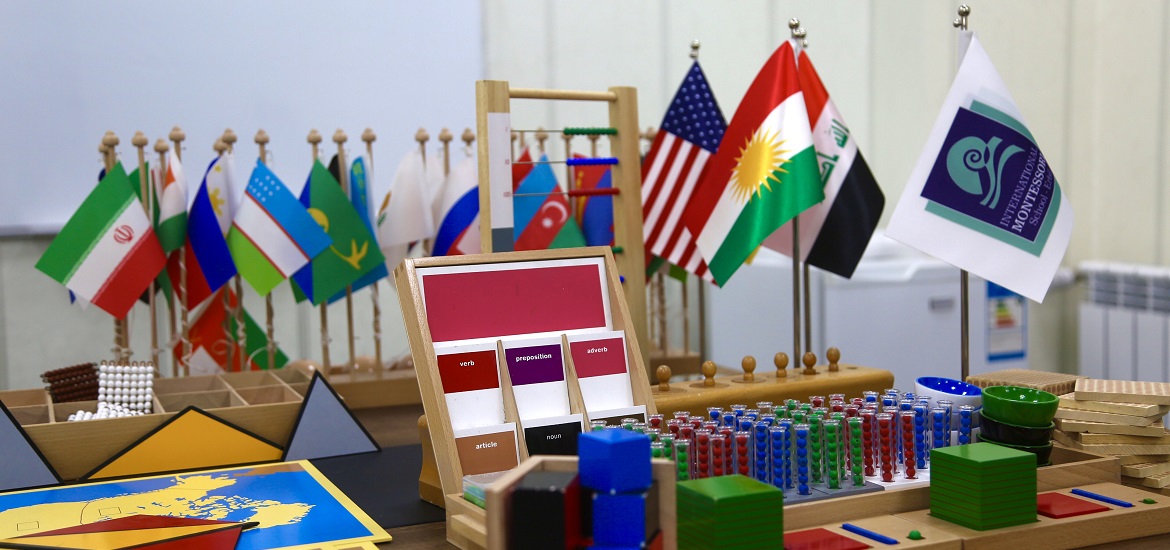Montessori Principles

Montessori Principles
Dr. Maria Montessori spend decades experimenting and observing in order to develop the tenets upon which the Montessori method of education is based. They are found on an admiration for the way students learn. As much as the principles of the Montessori are about distinguishing from it from conventional education, they are also about learning how childern learn.
Principles of Montessori Education
Respect for the Child
The Montessori approach places a premium on treating children with the utmost respect. This means allowing each child to develop at his or her own pace while honoring his or her individuality in terms of choice, movement, error correction, and rate of achievement. Those who have been trained in the Montessori method treat their work with children and interactions with them with respect.
Absorbent Mind
Maria Montessori found that a child's first six years are the most formative. She dubbed this time in a child's development the "absorbent mind" stage because of the child's propensity to take in information like a sponge. The foundations of a child's intelligence and personality are laid during this time, and they gain a deep understanding of their culture and the world around them.
Sensitive Periods
Dr. Maria Montessori found that there are certain ages at which children are particularly receptive to learning certain subjects. She referred to these ages as "sensitive periods," which are essentially learning opportunities. Sensitive periods are marked by long periods of focus, intense concentration, repetition, and commitment to a task.
Educating the Whole Child
The goal of a Montessori classroom is to help each child reach his or her full potential in all areas of development, including academics, health, and relationships. The Montessori Curriculum includes not only language and mathematics, but also sensorial, cultural, and practical life education. When thinking about a child's education and development, it's important to consider all of the moving parts together.
Individualized Learning
Each child's Montessori curriculum is tailored to their specific age, interests, and developmental needs. Individualized, individualized instruction using Montessori materials is provided for each student according to his or her level of development. Teachers monitor students' academic development and provide help as needed to ensure their success.
Freedom of Movement and Choice
Maria Montessori, the founder of the Montessori method of education, found that kids learn best when they have lots of room to explore, can pick their own activities, and can pursue their passions. The children in a Montessori classroom are given the freedom to explore the space, choose their own activities, and find their own paths to learning. The hallmarks of the Montessori approach to education are that it is active, individualized, self-correcting, and based on the unique interests and needs of each child.
Prepared Environment
"The prepared environment" is another name for a Montessori classroom. Everything in here has been thoughtfully placed and serves a function, making it an ideal learning environment. An obvious structure is present, which is beneficial to kids' growth of rational thought. The central concept is that of "order in both the environment and the mind." Children have complete autonomy to pursue their individual passions, select their own projects, and learn at their own pace while in this setting.
Intrinsic Motivation
In the Montessori method, the act of learning itself is viewed as a positive outcome. As a form of reinforcement, gold stars are not used in a Montessori classroom. Instead, children gain satisfaction from mastering a task and applying it independently.
Independence
Education in the Montessori method emphasizes self-reliance. It gives kids the space, resources, and instruction they need to become independent learners. It holds that children are naturally curious and open to learning when given the right opportunities. In a Montessori classroom, freedom to learn and explore is emphasized above all else.
Auto-Education
The idea of self-directed learning is central to the Montessori approach. It's predicated on the idea that kids can learn on their own if they're given engaging material to work with. Because of this need, Montessori resources were created to give children more agency in their learning. Montessori teachers facilitate an environment where children can learn independently through guidance and support.





